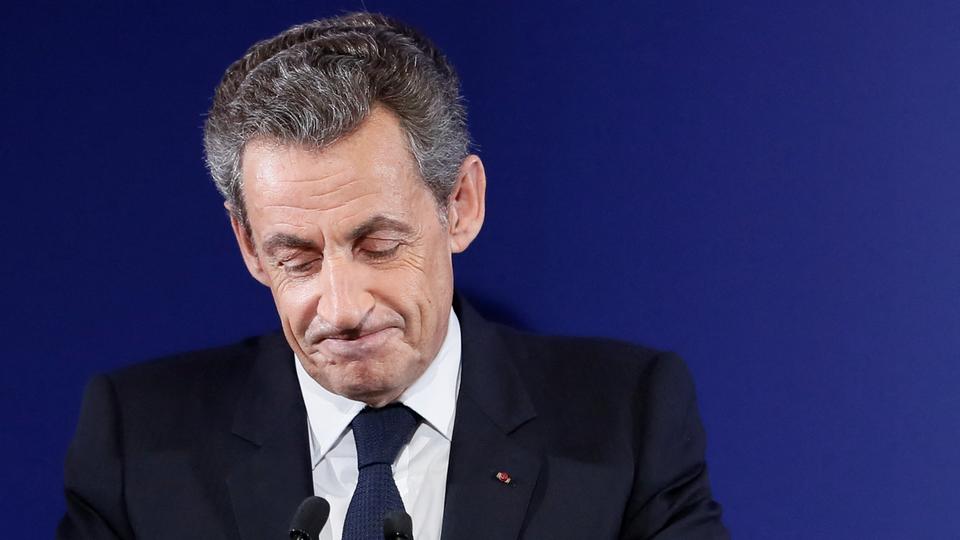
Former French President Sarkozy Gets One-Year Jail Term over Campaign Financing
A French court Thursday imposed a one-year sentence on former president Nicolas Sarkozy after finding him guilty of illegal campaign financing for massive overspending on his 2012 re-election campaign. The verdict came six months after he was found guilty of corruption in a separate trial.
The court will allow the ex-president to serve the sentence at home by wearing an electronic monitoring bracelet, FRANCE24 reports.
Sarkozy, who spent nearly twice the legal limit on his failed bid for a second term in office, wasn’t present at the Paris court for the announcement of the verdict.
Moments after the sentence was announced, Sarkozy’s lawyer Thierry Herzog said he would appeal.
The 66-year-old right-winger pulled out all the stops in 2012 to try fend off the ultimately victorious Socialist candidate, François Hollande.
A series of lavish US-style election rallies caused his costs to spiral, with the final bill coming to at least 42.8 million euros $49.7 million), nearly double the legal limit of 22.5 million euros.
The case is known as the Bygmalion affair, after the name of the public relations firm that set up a system of fake invoices to mask the real cost of the events.
Prosecutors had sought a one-year prison sentence, half of it suspended, for the former president. The verdict is not the same as a suspended sentence, as it goes down in his record as a full prison term.
It was the second guilty verdict this year for Sarkozy, who led France from 2007 to 2012 and retains influence among conservatives despite falling from grace over his legal woes.
The court stated that Sarkozy “knew” weeks before the 2012 election that the legal limit was at stake and “voluntarily” failed to supervise additional expenses, with prosecutors accusing him of having ignored two notes from his accountants warning about the money issue.
Prosecutors argued Sarkozy is “the only person responsible for his campaign financing” and that he chose to exceed the limit by organising many rallies, including giant ones.
During his hearing in June, Sarkozy told the court the extra money didn’t go into his campaign, but instead helped make other people richer.
He denied any “fraudulent intent.” He also insisted he didn’t handle the logistics of his campaign for a second term as a president nor did he oversee how money was spent, because he had a team to do that.
“Can you imagine me going into a meeting to discuss the cost of flags?” he told the court in June. “I had too much to do.” “From the moment I was told things were in order, I had no reason to give it more thought,” he added.
This conviction comes six months after he was given a jail term for corruption and influence peddling in a separate trial, when he tried to a judge in order to obtain confidential information on a judicial inquiry. He also denied any wrongdoing in that case.
The former president was sentenced to three years in jail in that trial – two of which were suspended. Like with Thursday’s sentence, he will probably avoid jail, with the judge saying she would consider letting him serve the remaining year of his sentence at home, if he wore an electronic ankle bracelet. His appeal is also pending.
He became nevertheless France’s first post-war president to be handed a custodial sentence. Before him, the only former leader to be sentenced at trial was Sarkozy’s predecessor Jacques Chirac, who received a two-year suspended sentence in 2011 for corruption over a fake jobs scandal relating to his time as Paris mayor.
Sarkozy, who has accused the judiciary of hounding him since he lost his presidential immunity, appealed that verdict.
In addition to the former president, 13 other people went on trial, including members of his conservative Républicans party, accountants and heads of the communication group in charge of organizing the rallies, Bygmalion. They face charges including forgery, breach of trust, fraud and complicity in illegal campaign financing.
Some have acknowledged wrongdoing and detailed the system of false invoices that aimed to cover up the overspending.
Prosecutors have requested mostly suspended prison sentences, and up to one year in prison for Bygmalion’s co-founder.

